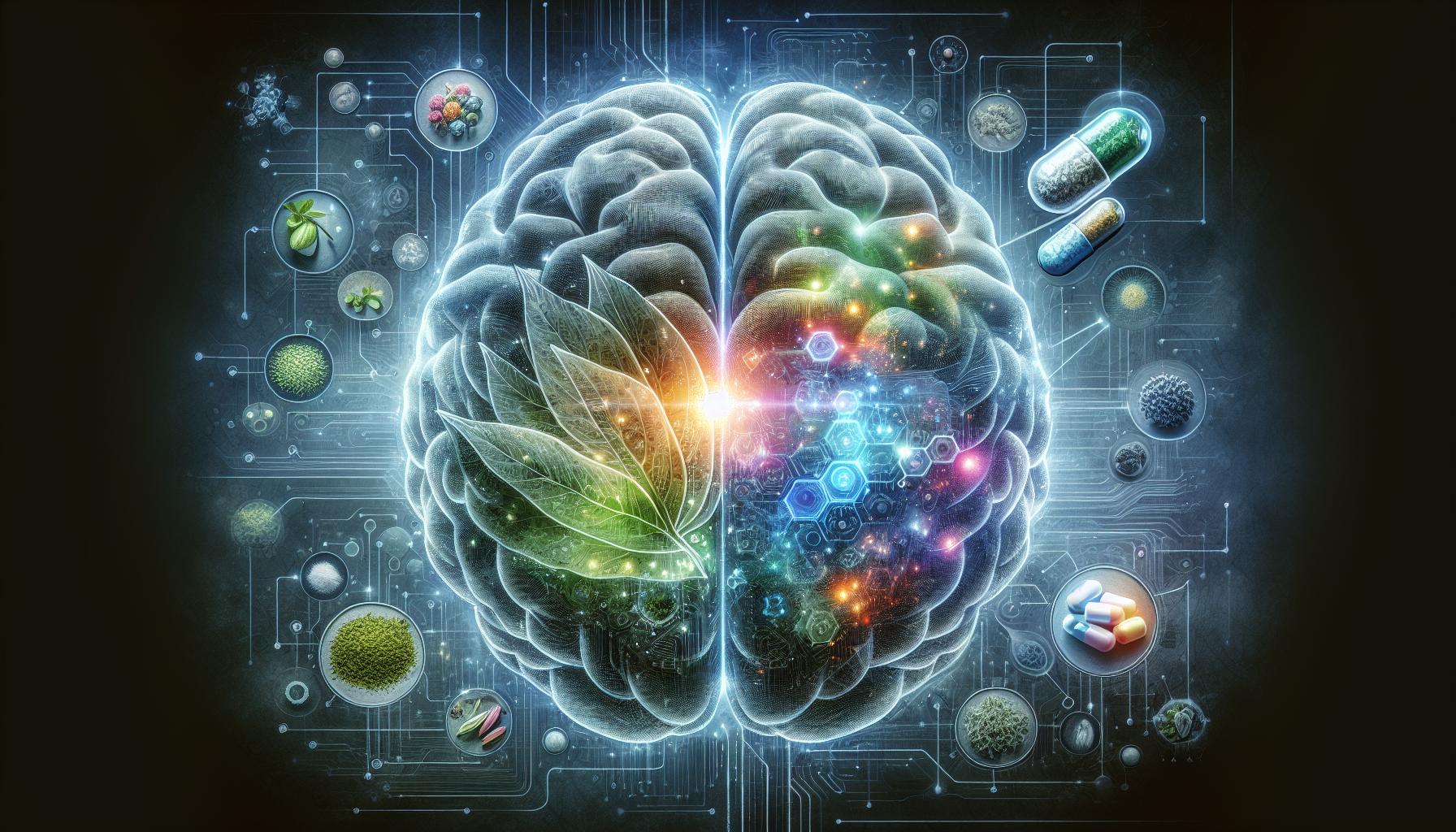
Introduction to Nootropics, Nature’s Neural Enhancers
Ever wondered what it would be like to have that movie-worthy brain boost? Like stepping into the shoes of Bradley Cooper in Limitless? Well, that’s essentially what nootropics claim to do! In brief, nootropic drugs are compounds taken to enhance brain function.
To give you a better understanding, let’s delve into the realms of neuroscience and human cognition. This article will explore the ins and outs of nootropics in a practical, easy-to-understand manner. Strap in and prepare for an enlightening journey of cognitive enhancement!
Origin and Overview of Nootropics
Before we leap headlong into the jungle of neuro-jargon surrounding nootropics, let’s first address the basics. The term ‘nootropic’ originates from the Greek words ‘noos’, which translates to ‘mind’, and ‘tropos’, meaning ‘turn’. So, nootropics, in essence, are mind-turning substances.
The Birth of the Brain Boost
Fascinatingly, the first nootropic sprang to life not in a natural setting, but in a lab, far from any boundless brain-boosting wilderness. It was the masterstroke of Romanian psychologist and chemist, Dr. Corneliu E. Giurgea, who invented Piracetam, considered the first true nootropic, in 1964.
Breaking Down the Nootropic Nutshell
Now that we know a little about the origin story of nootropics, let us delve deeper. What makes a substance a nootropic? Well, not just any old pill, potion, or powder can be given this esteemed title.
Spotlight on the Substances
First and foremost, for a substance to be classified as a nootropic, it needs to be able to enhance one or more aspects of cognitive functioning, such as memory, focus, attention, or even creativity. But, the beauty of nootropics is not just in the immediate spike in cognitive prowess.
The Science Behind the Scenes
You may be asking yourself, “How on earth do these nootropics work their wonders on our brains?” Understanding the exact mechanisms can be a little complex, so let’s simplify it.
Diving into the Depths
Diving beneath the surface, nootropics work in several ways to enhance cognitive function. Some substances increase blood flow to the brain, others influence the production and reception of various neurotransmitters, and still others provide essential nutrients or improve the efficiency of cellular metabolism.
A Closer Look at Some Notorious Nootropics
As we’ve established so far, nootropics are substances taken to stimulate cognitive abilities or to protect the brain’s health. The world of nootropics is incredibly diverse, ranging from everyday items like caffeine to specifically formulated lab compounds like racetams.
From Coffee Cups to Chemistry Labs
One common nootropic you might be familiar with is caffeine. While many of us run on a steady drip of this beloved stimulant, caffeine does more than just giving us that early-morning kickstart. It actually works to inhibit adenosine, a substance in our brains responsible for promoting sleep and relaxation.
The Final Frontiers of Nootropics
Nootropics have grown in popularity not just amongst the science community but also among the public. As our understanding advances and the veil of mystery surrounding these brain-boosters lifts, we’re seeing more and more individuals turning to nootropics for that edge in cognitive performance.
The Future’s Bright, the Future’s Brain-Boosted
From enhancing learning capacity in students to potentially slowing cognitive decline in the elderly, nootropics open a veritable Pandora’s box of possibilities. The sector is expected to grow even further as research progresses and consumer interest rises.
In A Nutshell – Nootropics and You
In conclusion, nootropics, fondly dubbed ’brain boosters’, are substances that work in various ways to upgrade your cognitive functioning. While there’s still much we need to learn about these interesting compounds, what we do know is undoubtedly fascinating!
Frequently Asked Questions
1. Are nootropics safe to use?
Nootropics, like any other substances, can have side effects, especially if abused. However, their safety largely depends on individual users and the specific nootropic in question. Always consult with a healthcare provider before starting any supplement regimen.
2. What’s the difference between natural and synthetic nootropics?
Natural nootropics are substances found in nature, like caffeine or L-theanine, that have cognitive enhancing effects. Synthetic nootropics, on the other hand, are lab-made substances such as racetams or modafinil.
3. How long does it take for nootropics to work?
The time it takes for nootropics to show effects varies based on the specific nootropic and individual user characteristics.
4. Can I take nootropics every day?
The frequency at which you can take nootropics largely depends on the specific substance and its recommended dosage. Ensure to follow recommended guidelines and seek medical advice if unsure.
5. Can nootropics help with depression or anxiety?
Certain nootropics have been found to have positive effects on mood and stress levels. However, they should not be used as a replacement for professional medical treatment for mental health conditions.


0 comments